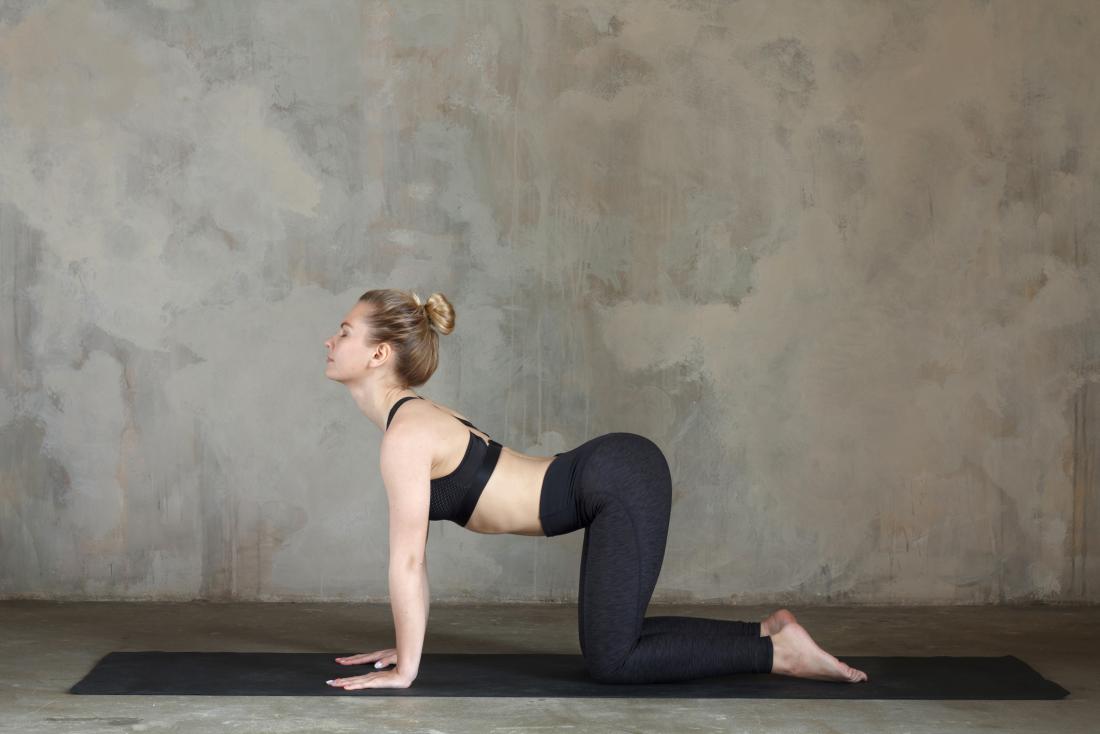Can yoga improve your sex life?

The Internet abounds with wellness blogs that recommend yoga for a better sex life, as well as personal accounts of the practice improving sexual experience — often to an enviable degree. Does the research back up these claims, however? We investigate.
Modern research is only just starting to unpack the numerous health benefits of the ancient practice of yoga.
Some conditions that yoga reportedly helps with include depression, stress, and anxiety, as well as metabolic syndrome, diabetes, and thyroid problems.
Recent studies have also delved into the more complex mechanisms behind such benefits.
It turns out that yoga lowers the body's inflammatory response, counters the genetic expression that predisposes people to stress, lowers cortisol, and boosts a protein that helps the brain grow and stay young and healthy.
On top of all its benefits, we must add, it just feels good. Sometimes — if we're to believe the hype around the mythical coregasm during yoga — it feels really, really good.
Getting in touch with our bodies can feel replenishing, restorative, and physically pleasurable. However, can yoga's yummy poses improve our sex lives? We take a look at the research.
Yoga improves sexual function in women
One often-referenced study that was published in The Journal of Sexual Medicine found that yoga can indeed improve sexual function — particularly in women over the age of 45.
The study examined the effects of 12 weeks of yoga on 40 women who self-reported on their sexual function before and after the yoga sessions.
After the 12-week period, the women's sexual function had significantly improved across all sections of the Female Sexual Function Index: "desire, arousal, lubrication, orgasm, satisfaction, and pain."
As many as 75 percent of the women reported an improvement in their sex life after yoga training.
As part of the study, all of the women were trained on 22 poses, or yogasanas, which are believed to improve core abdominal muscles, improve digestion, strengthen the pelvic floor, and improve mood.
Some poses included trikonasana (also known as the triangle pose), bhujangasana (the snake), and ardha matsyendra mudra (half spinal twist). The full list of asanas can be accessed here.
Yoga improves sexual function in men
Yoga doesn't benefit just women. An analogous study led Dr. Vikas Dhikav, who's a neurologist at the Dr. Ram Manohar Lohia Hospital in New Delhi, India, examined the effects of a 12-week yoga program on the sexual satisfaction of men.
At the end of the study period, the participants reported a significant improvement in their sexual function, as evaluated by the standard Male Sexual Quotient.
The researchers found improvements across all aspects of male sexual satisfaction: "desire, intercourse satisfaction, performance, confidence, partner synchronization, erection, ejaculatory control, [and] orgasm."
Also, a comparative trial carried out by the same team of researchers found that yoga is a viable and nonpharmacological alternative to fluoxetine (brand name Prozac) for treating premature ejaculation.
It included 15 yoga poses, ranging from easier ones (such as Kapalbhati, which involves sitting with your back straight in a crossed-legged position, with the chest open, eyes closed, hands on knees, and abdominal muscles contracted) to more complex ones (such as dhanurasana, or the "bow pose").
Yogic mechanisms for better sex
How does yoga improve one's sex life, exactly? A review of existing literature led by researchers at the Department of Obstetrics and Gynaecology, from the University of British Columbia (UBC) in Vancouver, Canada, helps us elucidate some of its sex-enhancing mechanisms.
Dr. Lori Brotto, a professor in the Department of Obstetrics & Gynaecology at UBC, is the first author of the review.
Dr. Brotto and colleagues explain that yoga regulates attention and breathing, lowers anxiety and stress, and regulates parasympathetic nervous activity — that is, it activates the part of the nervous system that tells your body to stop, relax, rest, digest, lower the heart rate, and triggers any other metabolic processes that induce relaxation.
"All of these effects are associated with improvements in sexual response," write the reviewers, so it is "reasonable that yoga might also be associated with improvements in sexual health."
There are also psychological mechanisms at play. "Female practitioners of yoga have been found to be less likely to objectify their bodies," explain Dr. Brotto and her colleagues, "and to be more aware of their physical selves."
"This tendency, in turn, may be associated with increased sexual responsibility and assertiveness, and perhaps sexual desires."
